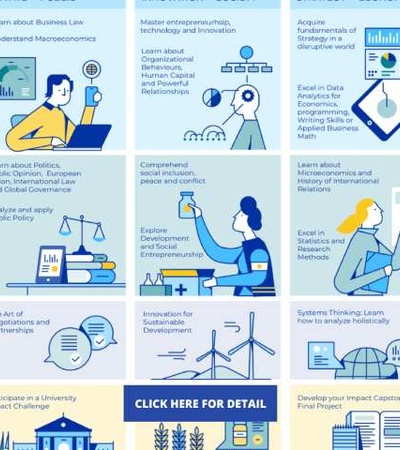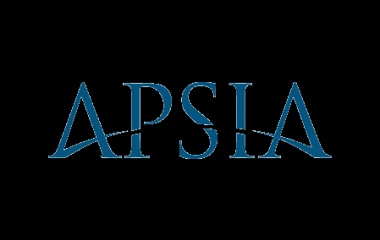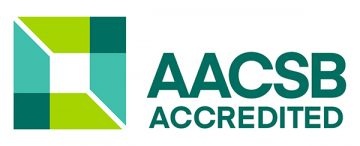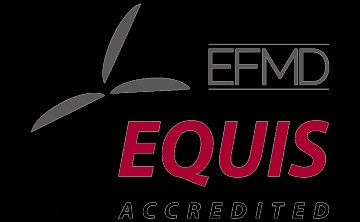Dual Degree in Business Administration & International Relations
Dual Degree in Business Administration & International Relations
Bring solutions to global challenges
- Home
- Studies
- Undergraduate Degrees
- Dual Degree In Business Administration & International Relations
A UNIQUE Dual Degree in Business Administration & International Relations
A UNIQUE Dual Degree in Business Administration & International Relations
The study plan for the Dual Degree in Business Administration & International Relations at IE University has been designed with the prestigious academic experience at its core, our academic faculty’s expert knowledge and research in each area, and the linkages between the University and the professional world.
The Dual Degree in Business Administration & International Relations aims to teach young ambitious individuals to build the proper skill set to become professionals capable of facing real-world challenges.
Through our hands-on teaching methodology, students from the Dual Degree in Business Administration & International Relations will find the perfect ideal balance between what is studied throughout their degree and the projects that are applied based on real-world scenarios.
This will aid them to develop profiles that are able to adapt to new trends happening now in the 21st century.

WANT TO KNOW MORE?
Dual Degree in Business Administration & International Relations Study plan
Dual Degree in Business Administration & International Relations Study plan
LEARN MORE ABOUT OUR Dual Degree in Business Administration & International Relations
LEARN MORE ABOUT OUR Dual Degree in Business Administration & International Relations
FIRST YEAR
Your first year will introduce you to the fundamental concepts of business administration and international relations. Subjects such as Introduction to Political Science, History of International Relations and Contemporary Global Issues will give you a broad overview of what international relations comprises of and how it shapes the world. In addition, you will widen your knowledge of business administration by completing courses such as Organizational Management, Introduction to Marketing, Financial Accounting and Introduction to IT. Your first year is a fantastic opportunity to join one of the many IEU Labs available, or gain invaluable work experience by completing an internship.
SECOND YEAR
Your second year will allow you to delve deeper into your courses, where you will discover how these fields complement each other and how you can harness both to solve global challenges. You will begin advanced courses in international affairs, including Development of International Systems, Comparative Politics and Public Opinion & Political Communication. In addition, you will take increasingly complex classes in business administration that include Management Control, Introduction to Economics, Econometrics and Entrepreneurship. As in your first year, you can choose to join an IEU Lab or complete an internship.
THIRD YEAR
In your third year you will continue to develop a sophisticated understanding of the ways in which business and international relations are integrated in order to understand how international organizations and global corporations operate. You will continue to advance your skills as a business professional by studying Corporate Finance, Strategies for Competing in Industries and Markets and Organizational Behavior. This will be complemented by your courses in international relations, including an in-depth study of the European Union and subjects that include Foreign Policy and International Political Economy. By the end of this year you will have acquired an appreciation of the role international law plays in global affairs.
FOURTH YEAR
Your fourth year will enable you to develop a greater appreciation of the ways in which international organizations function, through courses that include International Monetary Theory and Peace & Conflict Resolution Studies. You will decide which elective courses to pursue, and enhance your critical thinking skills to approach complex problems from diverse perspectives. Business courses including Strategic Management and HR and Operations Management will enhance your managerial skills, enabling you to become a fully rounded professional.
FIFTH YEAR
In your fifth and final year you will deliver both the BBA and International Relations final projects. You will develop and explore in depth a topic of your choice, and deliver a written project that you will present to a panel of judges. In addition, you will pursue advanced courses in both business and international relations, such as Global Governance and International Organizations, Production and Operations Management, Research Methods, International Trade and International Business.
THE BBA + BIR LEARNING JOURNEY
THE BBA + BIR LEARNING JOURNEY
Your path to career success unveiled through our engaging infographic: Explore it to discover more about the program structure!
WATCH THIS ENTREPRENEURSHIP MASTERCLASS
WATCH THIS ENTREPRENEURSHIP MASTERCLASS
Join Waya Quiviger's masterclass on social entrepreneurship; learn sustainable, impactful business models and real-world profit-with-purpose examples. Be a change-maker!
Learning a new language can open up a world of new opportunities
Learning a new language can open up a world of new opportunities
IE University considers multiple language acquisition to be a key element of its educational model, leading to success in both work and study.
The Language Center at IEU is proud to offer students the possibility to study a wide range of languages, including French, German, Portuguese, Chinese, Arabic, Spanish, and English. With such a large variety of options, our students are able to personalize their academic path to meet their future career plans and objectives.

The Language Center at IEU
The Language Center at IEU
The Language Center helps students develop their multilingual communicative skills to help them flourish in the international labor market.
Acreditations
Acreditations
COMPETENCES
COMPETENCES
Basic competences
GENERAL COMPETENCES
- Analyze companies’ needs to adapt instruments, products and services to their specific features.
- Organize and plan for situations that pose a challenge for decision-making in light of a company’s internal problems.
- Collect, analyze and summarize information from different sources in order to later apply it to business management.
- Ability to communicate in English orally and in writing.
- Adapt a company’s products and services using data analysis instruments.
- Define mechanisms enabling adaptation to new situations in the business environment.
- Develop arguments that demonstrate a critical understanding of political and social phenomena.
- Apply the knowledge acquired to develop interpretations of current economic phenomena and argue the case.
- Make use of historical and current documentary sources.
- Develop the technical IT competences necessary for a professional setting.
- Present a global vision with regards to trends and debates in international relations.
- Evaluate the economic dimension of international public and private policies.
- Plan and implement public and private policies at the international level, providing justification for their implementation.
- Use different information sources and channels to create and convey information, ideas, problems and solutions related to current international affairs.
- Train to conduct research and studies on the international sphere and its political, economic, social and cultural facets.
- Possess a critical understanding of the legal implications of international relations.
- Develop public- and private-sector strategies for real economic contexts.
- Communicate orally and in writing in both Spanish and English in a professional and academic context.
- Analyze and consider contemporary challenges and the social and cultural complexity of globalized society through a critical and creative lens.
- Apply suitable ethics-based judgements to all professional activities and relationships, with the ability to differentiate between personal and professional life.
- Apply and adapt knowledge and competences to a variety of international academic and professional contexts.
- Develop flexible problem-solving tools for organizational management that take the satisfaction of different stakeholders into consideration.
PROGRAM-SPECIFIC COMPETENCES
- Apply solutions that are efficient in a competitive market based on national and international economic knowledge.
- Manage a small company or organization, understanding its competitive and institutional position and identifying its strengths and weaknesses.
- Understand the duties of the different management bodies of a medium or large company or organization in order to perform the management tasks entrusted to it.
- Evaluate a company’s current situation and foreseeable future in terms of specific situations and markets, using relevant records to enable decision-making.
- Create management projects for a company as a whole or its different functional units, identifying relevant economic information sources and their contents.
- Recognize a company’s economic, global and structural situation within the labor market in which it operates, including the subject and/or the company.
- Interpret the current socioeconomic context based on basic historical, philosophical and political knowledge.
- Apply the appropriate business diagnostics tools and techniques to each stage of development in order to obtain better evaluation and decision-making at a company.
- Use the most appropriate models and research methods for a given company in light of its context and normal spheres of business development.
- Use knowledge of information and communication technologies in all professional activities.
- Apply professional judgment based on using technical instruments to analyze problems.
- Identify and manage the conditions enabling employees’ personal development in everyday strategic business settings.
- Identify the differences, problems and needs present within an organization in order to properly manage them.
- Access, recognize and use relevant data and information in business settings.
- Create recommendations for action by applying the legal framework in force.
- Use cost accounting to make company decisions in collaboration with different corporate stakeholders.
- Apply novel business ideas in order to design an entrepreneurial reality.
- Use market strategies in different sectors analytically.
- Compile, distribute and present statistical data for software development in economics settings.
- Apply IT solutions to corporate issues, taking the latest advances in the sector into consideration.
- Understand classical and contemporary political theories.
- Analyze and compare the structure and functioning of the main political systems.
- Recognize the paradigms, concepts and principles of political science.
- Understand microeconomic and macroeconomic models and obtain specific information from them.
- Be capable of identifying the key aspects of an economy and the operation of local and global markets.
- Understand international relations’ evolution as a discipline by placing it in the corresponding political, economic, legal and social contexts.
- Understand the historical dimension and evolution of the political and social processes hitherto in play in international relations.
- Produce, gather, analyze and interpret data and statistics.
- Understand the concepts, framework of application and theoretical foundations of international relations.
- Justify political and social stances in line with the discipline’s different theories.
- Understand the relationships between the different stakeholders in play as a function of a region’s current economic policy model.
- Understand the legal aspects and decision-making processes used as a part of nations and international organizations’ foreign policies in accordance with international law.
- Evaluate cases related to international jurisdiction, applicable law and the recognition and enforcement of judgements.
- Understand the structure, organization and operation of different types of international and supranational institutions, with particular focus on the European Union and the challenges it will face in the future.
- Analyze the course of global issues such as international terrorism, challenges in health and education and development cooperation.
- Understand and analyze the international economic environment and the economic dimension of international institutions using economic and financial tools in line with a given policy direction.
- Analytically connect past and current knowledge and processes through interdisciplinary analysis.
- Design communication strategies and apply political communication techniques.
- Apply the knowledge acquired to experimentation and the generation of new knowledge.
- Integrate and deploy all knowledge acquired throughout the program.
TRANSVERSAL COMPETENCES
- Identify the main cultural identity traits that characterize today’s world by understanding the main contemporary ideological trends.
- Behave professionally in accordance with the core principles and ethics of the profession.
- Manage unforeseen situations by being able to adapt to organizational changes.
- Use knowledge of the discipline to analyze and evaluate current situations.
- Form a part of interdisciplinary and multicultural teams to achieve shared goals in a diverse environment.
- Work actively in an international context.
- Develop decision-making competences and an entrepreneurial mindset.
- Create collaboration plans for partnerships between public and private institutions.
APPLICABLE REGULATIONS OF THE PROGRAM
APPLICABLE REGULATIONS OF THE PROGRAM









